.jpg?width=929&height=697&name=17%20Fry%20Zucc%20Harvest%20(1).jpg)
Guided by our vision and values, improving sustainability is one of DMPL’s strategic pillars. Our Board of Directors oversees Del Monte’s sustainability strategy. Our sustainability goals are developed together with functional leaders and their teams, each addressing priorities and implementing projects to achieve the sustainability goals. Conducting business goes beyond generating profit to ensure the well-being of our people and stewardship of the planet.
We focus on building the long-term resilience of our business. Each business unit has identified its material sustainability issues by location which may differ given the business model employed by the business units. For example, our Philippine company directly cultivates its fruits, while our U.S. subsidiary uses contract growers to source its produce.
We strive to ensure that Del Monte adheres to the highest governance standards in doing business. For more information on our governance principles, refer to pages 77 to 101 of our FY2023 Annual Report or visit our website at www.delmontepacific.com/corporate-governance.
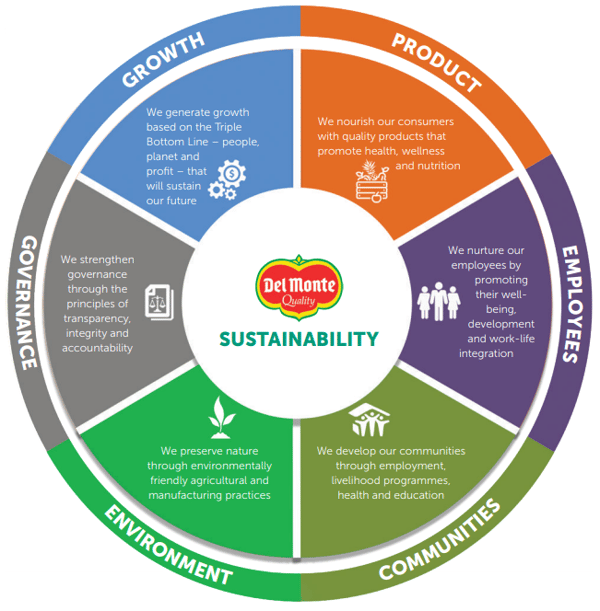
An independent materiality assessment process led by a global sustainability specialist firm examined our priorities among our stakeholders with respect to consumers, employees, communities, the environment, governance and business.
The objective of the materiality assessment is to identify the sustainability priorities, drawing from internal and external stakeholders to compile a list of issues specific to the food industry.
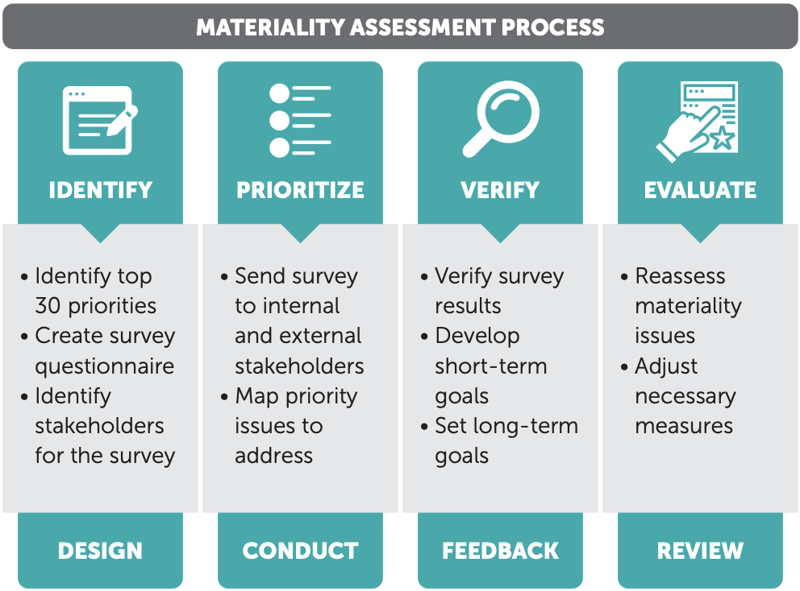
Aside from determining our top 10 priorities, we also identified emerging issues – soil management, talent management, data privacy, and cybersecurity. Moreover, the Group provided a section on climate change adaptation, energy efficiency, and corporate social responsibility. These are included in each pillar of the sustainability section of the DMPL website at https://www.delmontepacific.com/sustainability-1.
DMPL has engaged an independent third-party firm to update and identify our material topics and priorities based on the requirement of GRI 2021 standards. This will be published in the FY2024 sustainability report.
Del Monte’s Value Chain
Del Monte Pacific has instituted sustainability practices throughout the agricultural supply chain to ensure the quality of its produce. These include DMFI's plant breeding program, DMPI's drones to monitor plant health, and an Integrated Pest Management Program.
Number of Growers in the U.S.: 741
Plantation area in the Philippines: 28,000 ha.
DMPL’s manufacturing facilities focus on carbon emission reduction, efficient use of water and waste reduction. The Group plans to expand its use of renewable energy to reduce emissions.
Production Facilities
In the USA: 6
In Mexico: 2
In the Philippines: 3
In India: 1
Workers (note: change “Employees” to “Workers”)
Full-time and Seasonal Employees in the U.S.: Nearly 6,900
Full-time Regular employees in Asia: Close to 4,200
Service Provider Workers in the Philippines: About to 18,000
DMPL is mindful of its supply chain impact. One of the Group’s goals is transportation efficiency in distributing its products. This includes sea freight, rail transport and double decker trucks. DMPI installed GPS devices on third party trucks to determine the most efficient routes.
Sold in about 70 countries
Del Monte Pacific’s brands have been trusted by consumers for generations. This trust is the result of maintaining quality products that are nutritious and delicious. Mindful of consumers’ evolving preference, the Group expanded its product line in new categories - frozen fruits, organic canned products, dairy, bubble tea drink and biscuits.
US$ 2.4 billion revenue in FY23
New products contributed about 9% of DMPL’s total sales in FY23
The Group is developing biodegradable and compostable plastic packaging, and targeting to include 30% post-consumer recycled plastic content in its plastic packaging. In the Philippines, the Company will divert 20% of its post-consumer plastics from landfills in 2023 in compliance with the Extended Producer Responsibility Law. Implementing various material reduction initiatives is part of the Group’s initiative to reduce its waste.
Material Reduction Usage in the Philippines in FY23
121MT for rigid plastic bottle and caps
12.5MT for stand-up pouches / flexible laminates
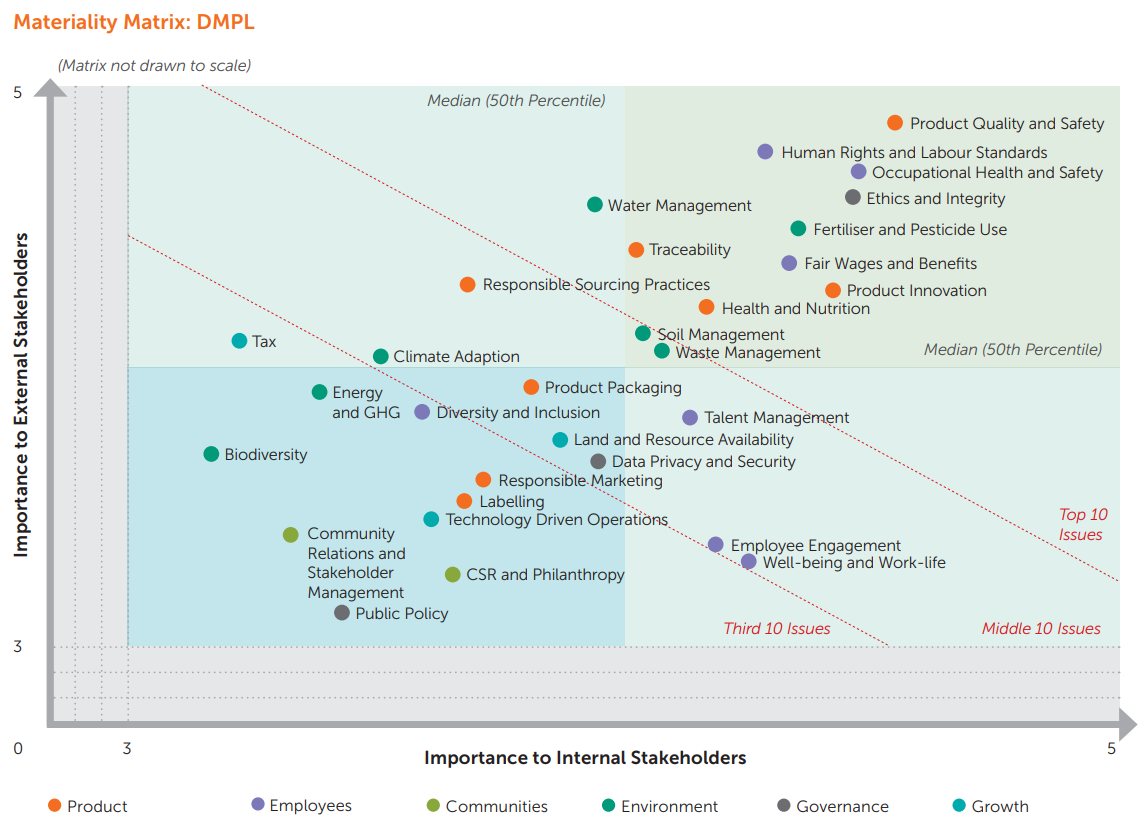
Our top 10 material priorities are as follows:
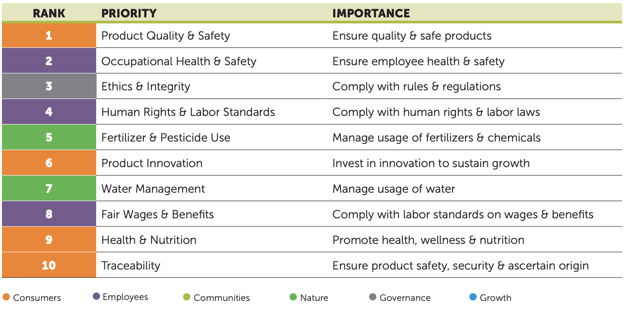
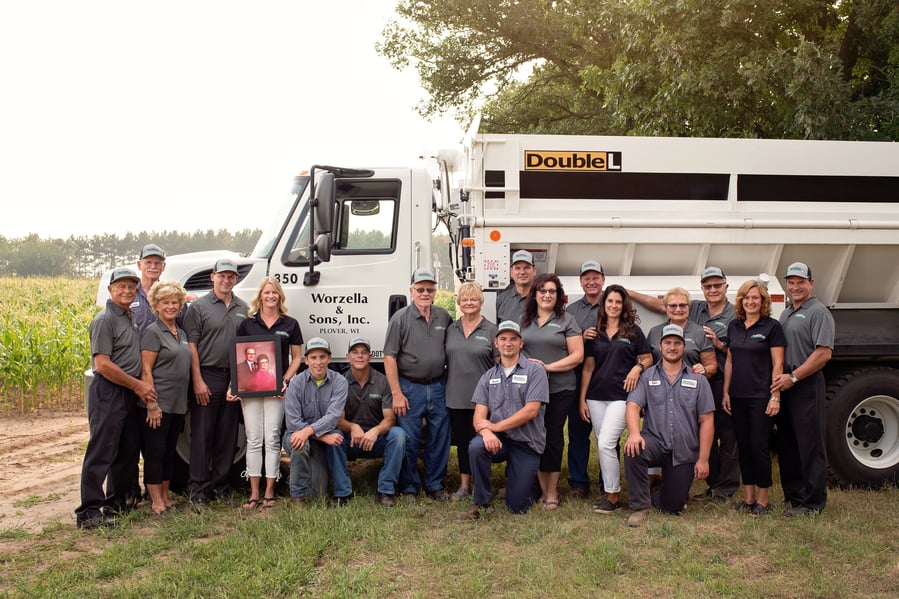 Some of DMFI's corn growers in the US
Some of DMFI's corn growers in the US
Our sustainability journey begins with our stakeholders, whom we nurture meaningful relationships with to strengthen collaboration, improve transparency, address potential risks, resolve concerns and sustain our performance.
Working together through partnerships with businesses, governments, NGOs and civil society can achieve effective outcomes, drive collective action, and build shared opportunities. Collaborating with multi-stakeholders is key in achieving our environmental, social and governance goals.
The Corporate Sustainability team leads efforts to increase sustainability advocacy among stakeholders. Key leaders are briefed about sustainability. We demonstrate our commitment which requires collective action with others.
We apply the principles of truthfulness, transparency, inclusiveness and accountability to build mutual trust and create a meaningful partnership with our stakeholders.
We engage proactively with our partners in areas where we operate. We value the insights and feedback of stakeholders on our material priorities, as we develop our sustainability strategy across our goals.
The following outlines how we engage with our key stakeholders. These groups were identified according to their level of influence, interest, and impact on the organization.
How We Engage Our Stakeholders
.png?width=1081&height=1081&name=Stakeholders%20Engagement%20(3).png)
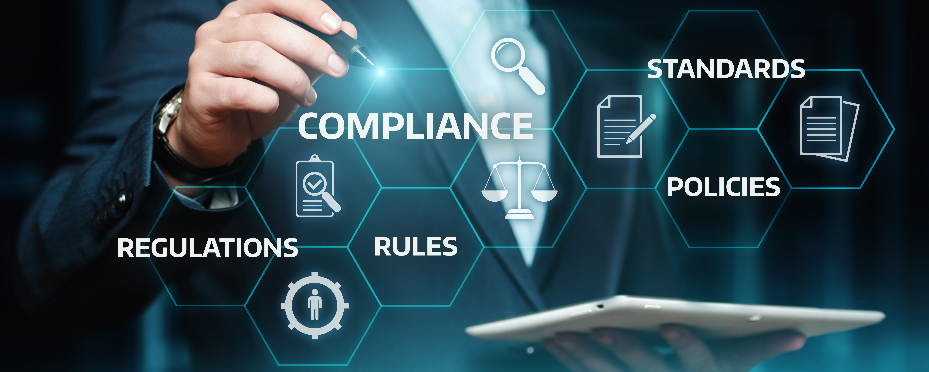
.png?width=7042&height=4793&name=Sustainability%20Infographic-01%20(1).png)
The Group uses the Global Reporting Initiative (GRI) Sustainability Reporting standards.
Our Quality Policy, Code of Conduct, Code of Business Ethics and Sustainability, and Environmental Policies help us comply with the standards set by the GRI. These are closely monitored and reported, as illustrated throughout this report.
.png?width=4213&height=5902&name=Value%20Chain%20(6).png)
Contadina (only accessible in the Philippines)
Del Monte Careersc/o 17 Bukit Pasoh Road Singapore 089831 Tel: (65) 6324 6822 Fax: (65) 6221 9477